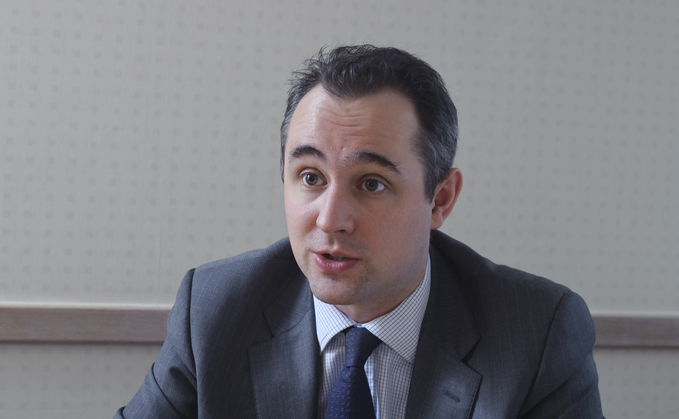
Barnett Waddingham's Ian Mills says the gilt market has had an 'allergic reaction' to the news of the past few days
Increases in government borrowing are likely to further reduce funding deficits in defined benefit (DB) pension schemes, consultants say.
As a result of the government's Mini Budget this morning, the UK Debt Management Office increased its planned bond sales for the 2022/23 fiscal year by £62.4bn to £193.9bn.
This came a day after the Bank of England's monetary policy committee raised rates by 0.5% to 2.25% - also announcing it would sell £80bn of government bonds over the coming 12 months.
Over the past few days, the interest rate on 20-year UK gilts moved from around 3.5% to just over 3.8% before the mini-Budget was announced. Rates have since increased to around 4% since this morning's statement.
Lane Clark & Peacock partner Jon Forsyth said: "The vast majority of DB schemes will find themselves in a better funding position this year than last, and today's announcements are likely to reinforce that trend. If long-term interest rates continue to rise, deficits will tend to fall, and for some schemes this could bring forward the potential to buy out or buy in some of their liabilities."
Barnett Waddingham partner Ian Mills noted the gilt market has reacted with what could best be described as an "allergic reaction" to the latest news, adding that some schemes will have seen their liabilities fall by as much as 10% in just a couple of days.
He said schemes that have not fully hedged their interest rate and inflation risks with liability-driven investment strategies will find sharp improvement in their funding positions, he added.
"For many this will present opportunities to de-risk, perhaps accelerating existing de-risking plans," he said. "Some schemes that previously thought buy-out was a long way off may now find it is within easy touching distance. Trustees should review their funding positions in the next few days and assess the implications for their own specific circumstances."
LDI challenges
However, he said continued increases in long-term yields will cause significant challenges for DB schemes using liability driven investment (LDI), potentially causing schemes to unwind or recapitalise hedges.
As Mills said: "The rise in gilt yields will likely cause schemes to have to recapitalise hedges - some will be able to do so from cash reserves, but others will find they are forced to sell other assets. Some schemes could even be forced to unwind hedges, exposing them to the risk of reversals in yields.
"Schemes using LDI should immediately review whether their collateral buffers remain adequate and consider taking remedial action if not. Waiting to receive a collateral call that you cannot meet is not a good idea."
Schemes that have LDI portfolios alongside substantial illiquid asset programmes, which could include private equity, real estate, and private credit, may find that their illiquid asset base is now a much more significant proportion of their overall portfolio than they expected to be.
This is because liquid assets will be the natural first step to maintain LDI hedges.
Mills warned that the rise in yields could disturb the ongoing viability of the whole strategy:
"It may now be much harder to maintain a suitably diversified portfolio or even to meet benefit payments in extreme cases. These schemes should immediately review their illiquid asset programmes to ensure they remain suitably robust to the possibility of further rises in gilt yields."
Improving funding
In August, the aggregate surplus of 5,215 schemes in the Pension Protection Fund's (PPF) 7800 Index increased by £60bn to £313.8bn as bond yields continued to rise, marking the highest surplus since the PPF started reporting the data.
The number of schemes in surplus increased to 4,081 at the end of August 2022 from 2,894 schemes at the end of August 2021, while the surplus of the index was £254.3bn at the end of July.
The improvements led to the funding ratio increasing from 118.2% at the end of July to 125.1% - a huge rise from the 105.4% recorded a year ago in August 2021.







